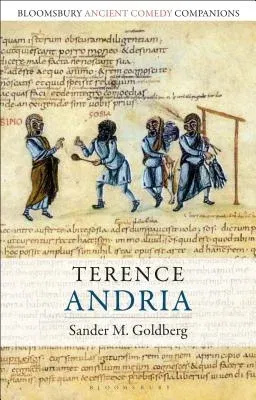Sander M Goldberg
(Author)Terence: AndriaPaperback, 10 January 2019

Qty
1
Turbo
Ships in 2 - 3 days
In Stock
Free Delivery
Cash on Delivery
15 Days
Free Returns
Secure Checkout

Part of Series
Bloomsbury Ancient Comedy Companions
Print Length
160 pages
Language
English
Publisher
Bloomsbury Academic
Date Published
10 Jan 2019
ISBN-10
1350020621
ISBN-13
9781350020627
Description
Product Details
Author:
Book Format:
Paperback
Country of Origin:
US
Date Published:
10 January 2019
Dimensions:
21.34 x
13.72 x
1.27 cm
Genre:
Ancient (To 499 A.D.)
ISBN-10:
1350020621
ISBN-13:
9781350020627
Language:
English
Location:
New York
Pages:
160
Publisher:
Weight:
204.12 gm